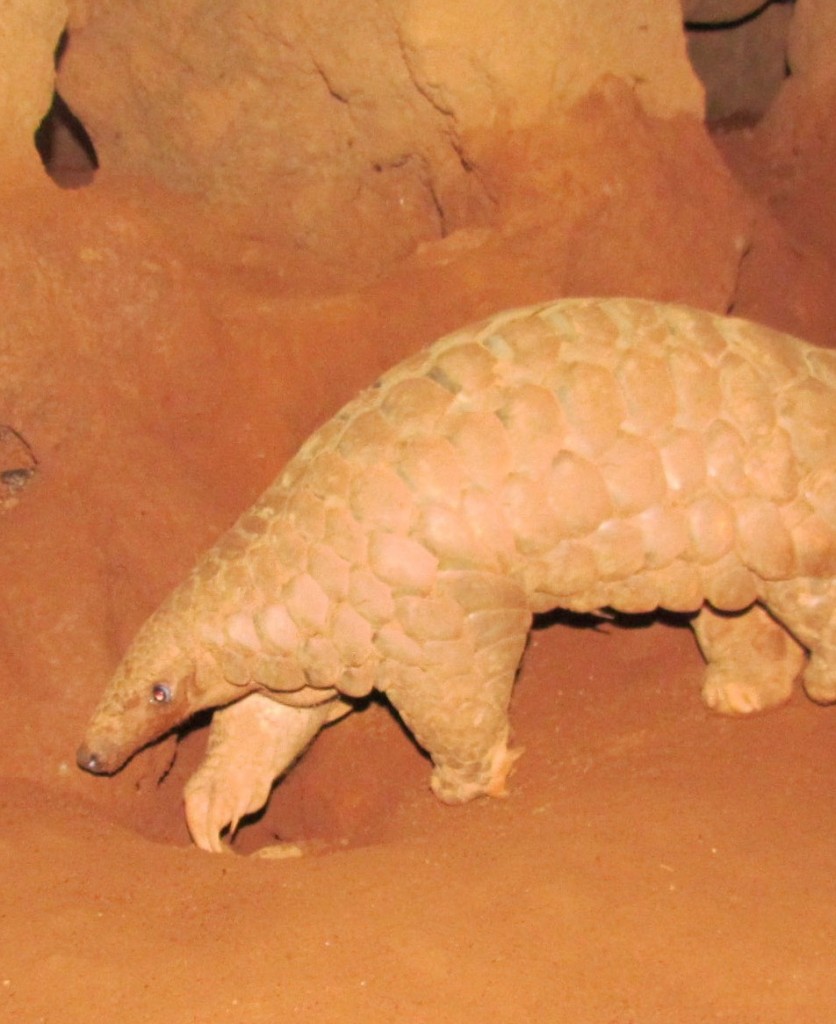Pangolins are difficult to maintain in captivity. Stress and malnutrition are major causes of fatality among captive pangolins and mortality rates of 67% a year have been reported for the Indian pangolin (Manis crassicaudata). Similarly, very little information is available on appropriate housing and husbandry practices which pose further challenges to rearing this species in captive environments.
However, the Nandankanan Zoological Park (NKZP), a large zoo in India, has been maintaining and breeding Indian pangolins in captivity for the last few years. Its Pangolin
Conservation Breeding Centre (PCBC) was established in 2008 in an off-exhibit area of the zoo, to develop appropriate methodologies for captive management and breeding of the Indian pangolin, with financial support from India’s Central Zoo Authority (CZA). Here, Indian pangolins are housed in naturalistic enclosures with red laterite soil as the main substrate and hollow wooden logs, dried tree trunks, earth mounds and a pool of water, as enrichment materials. The husbandry routine consists of cleaning the enclosure, maintaining the water source and pool, feeding and monitoring the health of the animals. So far, research here has focused on the development of protocols for general husbandry, veterinary care and breeding Indian pangolins. Behavioural monitoring has also been undertaken using infrared closed circuit televisions cameras to understand the animals’ nocturnal behaviour, utilisation of space and their response towards different types of environmental enrichment. The centre has also rescued and hand-reared a juvenile Indian pangolin, which provided valuable insights into the most appropriate care and feeding protocols for young animals.
Having recently registered for a PhD at Utkal University in Odisha, India, my objective now is to research patterns of behaviour, space utilization, reproductive biology, haematology, the effect of environmental enrichment and identification of ecto- and endo-parasites in captive Indian pangolins which will contribute to the captive management and conservation of this species.
by Rajesh Kumar Mohapatra, Pangolin Conservation Breeding Center, Nandankanan Zoological Park, India and member of the IUCN SSC Pangolin Specialist Group.
All images in this post are copyright of Rajesh Kumar Mohapatra.




